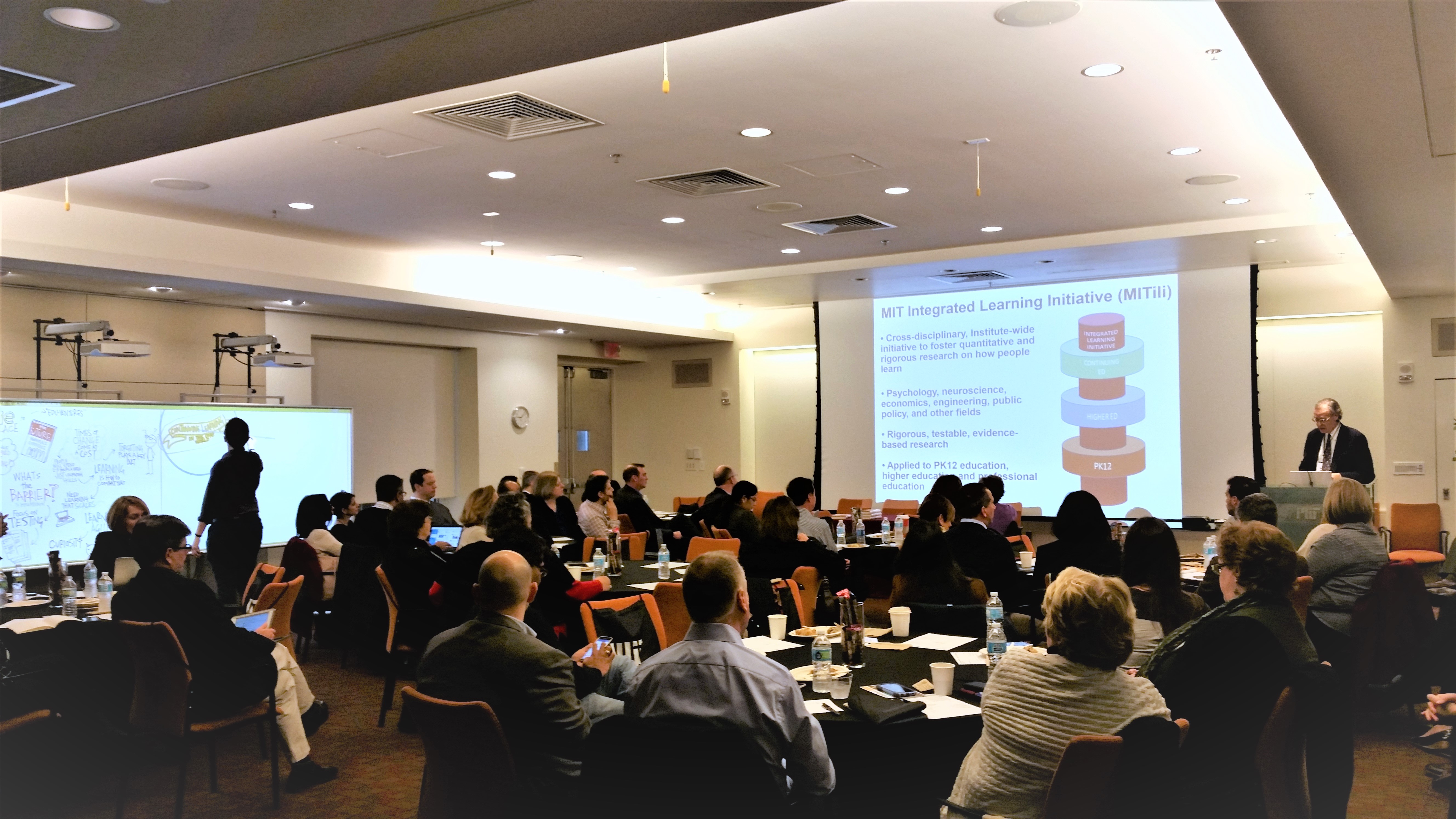
In an event co-sponsored by Fidelity Investments and moderated by Future Workplace, the MIT Integrated Learning Initiative (MITili) hosted leading Chief Learning Officers (CLOs) and their teams on the final day of a three-day convening.
Participants from organizations including Cigna, Degreed, edX, EY, GE, Google, IBM, and McKinsey gathered to hear from MIT professor Sanjay Sarma (Mechanical Engineering, VP Open Learning), MIT professor John Gabrieli (Brain and Cognitive Sciences), and MIT Center for Transportation Logistics executive director Chris Caplice.
Professor Sarma spoke on how MIT looks at learning at a broad level. Professor Gabrieli drilled down into what cognitive science tells us about how brains learn. And executive director Caplice capped the series of talks with a practical look at how the science translates to the creation and delivery of specific learning experiences.
The assembled learning teams wrapped up the early morning session with a group discussion of insights gleaned from the three talks in the context of their strategic and day-to-day operations. Remarks ranged from the need to build science of learning findings into workforce learning to new capabilties being offered by the latest instructional design tools and learning platforms.
After a short pause for networking and caffeine, the learning experts split up into breakout groups to share experiences, challenges, and solutions to questions including the following:
- Within your organization, what job roles does learning reach? And fail to reach?
- Is your workforce learning created in-house? Externally? Or a mix?
- To what extent is your learning delivered in person, digitally, or blended?
- What technology platforms are you using to deliver learning?
Following the breakouts, the group re-assembled to share what they uncovered. Representative comments included:
- "We're an organization of more than 45,000 employees, and as learnign leaders, our charge is to meet them all--from entry level to the executive suite."
- "We're not that large, and for the next year, we've been asked to focus on front-line employees with an eye toward their paths for advancement."
- "Our learning is trending away from solo and toward social and collaborative."
- "Roughly speaking, 20% of our learning is in person with the rest distributed [virtual]."
- "Employees tell us that they're enjoying the move away from our old, rigid LMS toward a mesh of systems that include that LMS but also social networks and peer-surfaced external resources."
- "We measure learning in a number of ways: occassionally, pre- and post-tests, but more and more, through metrics including NPS [Net Promoter Score], retention and advancement, and P&L."
The event concluded with a lunch panel tackling the question of how to accelerate a culture of learning. Future Workplace's Kevin Mulcahy moderated a conversation featuring MIT xPRO's TC Haldi, edX's Lee Rubenstein, EdCast's Amar Dhaliwal, and Degreed's Patrick Marchand. The common thread that wove through their answers was the move away from top-down centralized planning to still guided but increasingly peer-informed and collaborative just-in-time learning.